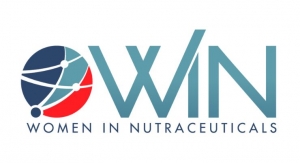Erik Goldman, Holistic Primary Care10.03.16
The ascent of the Millennial generation as a dominant economic force and the gradual sun-setting of the Baby Boomer generation is going to profoundly reshape many industries, healthcare included.
On both sides of the practitioner-patient divide, the shift from the Boomer to the Millennial mindset is underway, and it has big implications for practitioner-focused supplement companies, as it does for anyone involved in producing health-related products.
Executives in our space need to pay close attention to these changes, particularly if they are running companies with long legacies. Many of the companies in the practitioner channel were built by Baby Boomers, for Baby Boom practitioners who are caring for Baby Boom era patients. A few companies have even deeper historical roots, some even dating back to the 1920s.
Understanding the realities of the Millennial generation will be essential for the continuance of those legacies.
Transience is the Rule, Transparency the Dream
Millennials, born in the 1980s and reaching young adulthood in the first decade of the new millennium, have grown up in a world in which transience is the rule, traditional hierarchical frameworks are no longer the norm, and information and interpersonal communication are instantaneous and ubiquitous.
Access to relatively inexpensive but powerful information technology is a given for this generation that never really knew a world without Internet, mobile phones and social media. Online self-exposure is the norm, and the expectation. Along with this goes a strong desire for “transparency”—or at least the illusion of it.
The Millennial sensibility has also been shaped by a prolonged economic recession occurring against a backdrop of major shifts in post-war geopolitical alignments.
Technologically, the Millennials have unprecedented degrees of freedom, but this is curtailed on the one hand by economic constraints, and on the other by the overwhelming volume of options.
In myriad ways, the Millennials are very different from their Baby Boom and World War II (or “GI Generation”) predecessors. Broadly, the factors influencing Millennials are:
Millennials never knew the “Marcus Welby” era where a doctor was a known and trusted pillar of his or her community and took care of multiple generations of the same families. Many have never had an extended relationship with any practitioner.
Managed care—with its changeable rules about “in-network providers”—is all they’ve ever known. They expect healthcare to be transactional, not necessarily relational—an expectation exploited by retail clinics, which are very popular with young, cash-strapped, often uninsured people.
Further, easy online access to the entire world’s medical libraries means that Millennials do not necessarily accept MDs or any other professionals to be all-knowing and unquestioned health experts. They expect to ask questions and to be treated as peers, not “patients.”
This trend began during the Baby Boom with its general spirit of “question authority.” It accelerated markedly with the advent of the Internet and its limitless possibilities for self-education.
Many older physicians find it jarring to interact with self-educated young patients who’ve spent a lot of time researching online, a sentiment echoed in the popular online meme stating that, “Your Google search is NOT equivalent to my medical degree.”
Younger physicians never knew a time when doctors stood on ivory pedestals, and while they may not like being constantly challenged by Facebook know-it-alls, they are less likely than older doctors to take it personally, because they never had the experience of standing on an ivory pedestal.
Dr. Monya De is a young physician based in Santa Monica, CA, who works with a large population of young, highly educated people. Speaking at Holistic Primary Care’s 2016 Practitioner Channel Forum, she noted that Millennials represent roughly $200 billion in direct spending power, and $500 billion in indirect economic influence.
A significant number of people in their 20s and 30s are still living with their parents due to economic necessity, which means their health choices often have ripple effects back through the previous generation.
According to the Natural Marketing Institute’s Supplements, OTC, Rx Database (SORD), Millennials now represent 34% of supplement purchasers, up from 27% several years ago.
Self-Motivated & Supplement-Friendly
In general, Millennials have an open attitude toward supplements and natural medicine. Many view the pharmaceutical industry with suspicion. In the most recent SORD study, 45% of Millennials agreed that they, “Wish my doctor would discuss ways for me to lead a healthier lifestyle,” versus 37% of total cohort and 30% of Boomers.
Further, 40% of Millennials said they, “Wish my doctor knew more about alternative therapies for my condition.”
More than any prior generation, today’s young parents are questioning conventional medical wisdom around vaccines, use of antibiotics, the need for meat and dairy in a child’s diet and other issues.
Based on observations of her patients, Dr. De sees distinct patterns in how young people do and do not interact with healthcare:
Millennial Medicos
The generational shift is also manifesting within practitioner cohorts. Unlike their Baby Boom predecessors, Millennial clinicians never experienced the “Golden Era” of American medicine, when a medical career was an assured road to prosperity, respect and status. Most never knew a world in which doctors had full autonomy to make medical decisions without oversight from administrators.
Independent private practice is no longer the norm for American physicians as it was 30 or 40 years ago. In many medical schools, it is referenced merely as a historical footnote, not as something for which students must be prepared. Medical education today is about training clinicians to work in large managed care systems.
In contrast to previous generations, most young doctors today do not expect to own their own practices, nor is it something they want. Many view medical practice as a job, one that allows them to show up, do their doctoring and then go home.
This is less true among young practitioners of holistic and functional medicine—a field in which solo and small clinics outside the managed care frameworks are still the rule. But from an overall generational perspective, private independent practice is not the norm as it once was. The hassles, headaches and liability of establishing and maintaining a practice are turn-offs to many.
Not that managed care systems are without hassles, as many practitioners find out once they’ve been working in these systems for several years. Frustration with onerous oversight and bureaucracy is a prime cause of practitioner dissatisfaction, and a major factor pushing some seasoned practitioners—especially those with interests in holistic or functional medicine—to make mid-career leaps into solo cash-pay practice models.
For some young practitioners in the holistic/functional medicine world—especially the non-MDs—practice is non-local. They have consulting practices that take advantage of online platforms for teleconferencing. Though this is still the exception and not the rule, non-local practice is an emerging trend warranting attention.
Millennial practitioners are also the first generation to have come of age with the theories and concepts of personalized medicine—the idea that two people with the same symptom profile may need very different treatments in order to restore health. This notion is actually ancient and is a foundational principle in traditional medicine systems like Ayurveda and Chinese medicine. But it runs counter to the “standardized” protocols that have dominated conventional medicine in this country for the last 50 years.
In today’s world, a host of sophisticated tests and measurements that were once the costly province of specialists at major medical centers have moved out of the Ivory Towers and onto Main Street. People today can get their entire genomes read for less than $200. Consumer-accessible microbiome analytics are also available. Health-conscious consumers can now track an astonishing array of biometric data on their smartphones, in some cases transmitting that information in real time to physicians or health coaches.
The challenge for patients and practitioners alike is in translating all of this into meaningful and actionable healthcare decisions. It will largely fall to the Millennials—and even younger people coming up after them—to figure out how to do all of that.
Companies that wish to thrive in the coming decades need to look closely at the needs and expectations of Millennials, and design strategies to meet them.
What will “personalized” nutritional supplementation look like in the not-too-distant future when nutrigenomic testing becomes the norm?
How do practitioner-focused brands serve practitioners that do not have old-fashioned offices, but instead work out of multiple locations and spend most of their day in teleconsultations?
Where do highly-educated but non-licensed “para-practitioners” like nutrition counselors and wellness coaches fit in the practitioner channel?
I don’t have simple answers, but these are the kinds of questions posed by the iPhone generation … and you’d be wise to give them some thought.
Erik Goldman
Holistic Primary Care
Erik Goldman is co-founder and editor of Holistic Primary Care: News for Health & Healing, a quarterly medical publication reaching about 60,000 physicians and other heathcare professionals nationwide. He is also co-producer of the Practitioner Channel Forum, an annual executive level gathering focused on challenges and opportunities in the health practitioner channel. For more information: www.TPCForum.com.
On both sides of the practitioner-patient divide, the shift from the Boomer to the Millennial mindset is underway, and it has big implications for practitioner-focused supplement companies, as it does for anyone involved in producing health-related products.
Executives in our space need to pay close attention to these changes, particularly if they are running companies with long legacies. Many of the companies in the practitioner channel were built by Baby Boomers, for Baby Boom practitioners who are caring for Baby Boom era patients. A few companies have even deeper historical roots, some even dating back to the 1920s.
Understanding the realities of the Millennial generation will be essential for the continuance of those legacies.
Transience is the Rule, Transparency the Dream
Millennials, born in the 1980s and reaching young adulthood in the first decade of the new millennium, have grown up in a world in which transience is the rule, traditional hierarchical frameworks are no longer the norm, and information and interpersonal communication are instantaneous and ubiquitous.
Access to relatively inexpensive but powerful information technology is a given for this generation that never really knew a world without Internet, mobile phones and social media. Online self-exposure is the norm, and the expectation. Along with this goes a strong desire for “transparency”—or at least the illusion of it.
The Millennial sensibility has also been shaped by a prolonged economic recession occurring against a backdrop of major shifts in post-war geopolitical alignments.
Technologically, the Millennials have unprecedented degrees of freedom, but this is curtailed on the one hand by economic constraints, and on the other by the overwhelming volume of options.
In myriad ways, the Millennials are very different from their Baby Boom and World War II (or “GI Generation”) predecessors. Broadly, the factors influencing Millennials are:
- Economic Uncertainty: High unemployment and under-employment, coupled with massive education debt have made it difficult for many young people to establish themselves independently. This alters expectations regarding career, home ownership and sense of place. Many Millennials have no expectation—or desire—to own their own homes. Their relationships with geography, community, possessions and vocation are highly fluid.
- Democratization of Information: Millennials grew up with the assumption that anyone with a computer or mobile device can—and has a right to—access any sort of information instantly and without cost. This radically changes expectations about education, expertise and authority. It has direct bearing on how people relate with medical professionals and healthcare brands.
- Shifting Values About Home & Family: Many Millennials have divorced parents, and grew up in single-parent or compound, serial-marriage families. For them, the “nuclear family” that set expectations for the World War II and Boomer generations is not the norm.
- Transience as a Rule: The post-Boomer world is one of extreme mobility, rapid change, and minimization of external commitments. People born in the 1980s do not necessarily expect to stay at the same company or even in the same profession for more than a few years. Likewise, many have a sense that they “could live anywhere.”
Millennials never knew the “Marcus Welby” era where a doctor was a known and trusted pillar of his or her community and took care of multiple generations of the same families. Many have never had an extended relationship with any practitioner.
Managed care—with its changeable rules about “in-network providers”—is all they’ve ever known. They expect healthcare to be transactional, not necessarily relational—an expectation exploited by retail clinics, which are very popular with young, cash-strapped, often uninsured people.
Further, easy online access to the entire world’s medical libraries means that Millennials do not necessarily accept MDs or any other professionals to be all-knowing and unquestioned health experts. They expect to ask questions and to be treated as peers, not “patients.”
This trend began during the Baby Boom with its general spirit of “question authority.” It accelerated markedly with the advent of the Internet and its limitless possibilities for self-education.
Many older physicians find it jarring to interact with self-educated young patients who’ve spent a lot of time researching online, a sentiment echoed in the popular online meme stating that, “Your Google search is NOT equivalent to my medical degree.”
Younger physicians never knew a time when doctors stood on ivory pedestals, and while they may not like being constantly challenged by Facebook know-it-alls, they are less likely than older doctors to take it personally, because they never had the experience of standing on an ivory pedestal.
Dr. Monya De is a young physician based in Santa Monica, CA, who works with a large population of young, highly educated people. Speaking at Holistic Primary Care’s 2016 Practitioner Channel Forum, she noted that Millennials represent roughly $200 billion in direct spending power, and $500 billion in indirect economic influence.
A significant number of people in their 20s and 30s are still living with their parents due to economic necessity, which means their health choices often have ripple effects back through the previous generation.
According to the Natural Marketing Institute’s Supplements, OTC, Rx Database (SORD), Millennials now represent 34% of supplement purchasers, up from 27% several years ago.
Self-Motivated & Supplement-Friendly
In general, Millennials have an open attitude toward supplements and natural medicine. Many view the pharmaceutical industry with suspicion. In the most recent SORD study, 45% of Millennials agreed that they, “Wish my doctor would discuss ways for me to lead a healthier lifestyle,” versus 37% of total cohort and 30% of Boomers.
Further, 40% of Millennials said they, “Wish my doctor knew more about alternative therapies for my condition.”
More than any prior generation, today’s young parents are questioning conventional medical wisdom around vaccines, use of antibiotics, the need for meat and dairy in a child’s diet and other issues.
Based on observations of her patients, Dr. De sees distinct patterns in how young people do and do not interact with healthcare:
- More than 90% never get regular check-ups and only see a doctor when something’s wrong.
- Most do not have a regular relationship with a primary care physician.
- More than 50% prefer retail clinics and urgent care walk-ins to traditional medical practices.
- Most will have Googled their symptoms and tried several self-care options before seeking medical attention.
- Many assume that based on their Internet research, they know as much or more about their conditions than their doctors—and they expect that they may need to educate the doctor.
- Whenever possible they prefer to communicate with practitioners via e-mail or text rather than in person or on the phone.
- They have 24-7 social media relationships with the brands they prefer, and are heavily engaged in posting to social media multiple times each day.
- In terms of specific health issues, Dr. De said many of her patients are concerned with:
- Gluten, Leaky Gut & Food Allergies: They come in already self-diagnosed as “gluten-intolerant” or “allergic” to specific foods. They believe food sensitivities underlie whatever symptoms or problems they’re experiencing, and have often tried eliminating various foods.
- Brain Optimization & Cognitive Health: Many Millennials work in “brain” fields—IT, marketing, management online enterprises—with intense cognitive demands and relentless productivity pressure. They want to “optimize” their performance.
- Anxiety, Depression & ADHD: This is the generation that grew up with Prozac and Ritalin as a norm in school. Consequently, they’re keenly aware of psychological and cognitive disorders.
- Skin Health: Young people have always been appearance-conscious. Social media intensifies these concerns. More than any other generation, Millennials want to appear to be healthy, vibrant and having fun—even when they’re not.
Millennial Medicos
The generational shift is also manifesting within practitioner cohorts. Unlike their Baby Boom predecessors, Millennial clinicians never experienced the “Golden Era” of American medicine, when a medical career was an assured road to prosperity, respect and status. Most never knew a world in which doctors had full autonomy to make medical decisions without oversight from administrators.
Independent private practice is no longer the norm for American physicians as it was 30 or 40 years ago. In many medical schools, it is referenced merely as a historical footnote, not as something for which students must be prepared. Medical education today is about training clinicians to work in large managed care systems.
In contrast to previous generations, most young doctors today do not expect to own their own practices, nor is it something they want. Many view medical practice as a job, one that allows them to show up, do their doctoring and then go home.
This is less true among young practitioners of holistic and functional medicine—a field in which solo and small clinics outside the managed care frameworks are still the rule. But from an overall generational perspective, private independent practice is not the norm as it once was. The hassles, headaches and liability of establishing and maintaining a practice are turn-offs to many.
Not that managed care systems are without hassles, as many practitioners find out once they’ve been working in these systems for several years. Frustration with onerous oversight and bureaucracy is a prime cause of practitioner dissatisfaction, and a major factor pushing some seasoned practitioners—especially those with interests in holistic or functional medicine—to make mid-career leaps into solo cash-pay practice models.
For some young practitioners in the holistic/functional medicine world—especially the non-MDs—practice is non-local. They have consulting practices that take advantage of online platforms for teleconferencing. Though this is still the exception and not the rule, non-local practice is an emerging trend warranting attention.
Millennial practitioners are also the first generation to have come of age with the theories and concepts of personalized medicine—the idea that two people with the same symptom profile may need very different treatments in order to restore health. This notion is actually ancient and is a foundational principle in traditional medicine systems like Ayurveda and Chinese medicine. But it runs counter to the “standardized” protocols that have dominated conventional medicine in this country for the last 50 years.
In today’s world, a host of sophisticated tests and measurements that were once the costly province of specialists at major medical centers have moved out of the Ivory Towers and onto Main Street. People today can get their entire genomes read for less than $200. Consumer-accessible microbiome analytics are also available. Health-conscious consumers can now track an astonishing array of biometric data on their smartphones, in some cases transmitting that information in real time to physicians or health coaches.
The challenge for patients and practitioners alike is in translating all of this into meaningful and actionable healthcare decisions. It will largely fall to the Millennials—and even younger people coming up after them—to figure out how to do all of that.
Companies that wish to thrive in the coming decades need to look closely at the needs and expectations of Millennials, and design strategies to meet them.
What will “personalized” nutritional supplementation look like in the not-too-distant future when nutrigenomic testing becomes the norm?
How do practitioner-focused brands serve practitioners that do not have old-fashioned offices, but instead work out of multiple locations and spend most of their day in teleconsultations?
Where do highly-educated but non-licensed “para-practitioners” like nutrition counselors and wellness coaches fit in the practitioner channel?
I don’t have simple answers, but these are the kinds of questions posed by the iPhone generation … and you’d be wise to give them some thought.
Erik Goldman
Holistic Primary Care
Erik Goldman is co-founder and editor of Holistic Primary Care: News for Health & Healing, a quarterly medical publication reaching about 60,000 physicians and other heathcare professionals nationwide. He is also co-producer of the Practitioner Channel Forum, an annual executive level gathering focused on challenges and opportunities in the health practitioner channel. For more information: www.TPCForum.com.




























